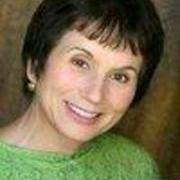Hundreds of people have asked me why someone develops an eating disorder. Of course many issues are involved, but from my exploration of this field over the years, I have concluded that there is one outstanding theme that runs through every person with an eating disorder whom I have encountered.
Early in their lives, people with eating disorders have experienced, on a sustained basis, relentless boundary invasion on every level.
When their physical, emotional, psychological, intellectual, sexual, and creative boundaries are consistently ignored and penetrated, people experience total boundary invasion. With no control and no way to end, protest, or, often, even acknowledge such invasions, these persons feel helplessness, despair, and a certainty that they are worthless to themselves or anyone else.
The consequences of such total invasion are vast. One consequence is an eating disorder. Having had so many boundaries disregarded, a person has no knowledge or skills in recognizing or honoring boundaries herself. She will eat or starve for emotional relief.
She may eat vast amounts of food for comfort value alone. She may deprive herself of food until her life is in danger. She has no internal regulator that tells her when she has reached her limit and experienced enough. Being oblivious to any boundaries means being oblivious to limits of any kind.
The compulsive overeater eats whenever and whatever she likes. She bases her choices on self-medication issues, not feelings of physical hunger.
The anorexic will not eat. There is no limit to her not eating. She will starve herself to death in search of relief from her emotional pain. She knows nothing of the experience of having enough. She couldn't say, "Enough," to an invader of her boundaries, and she can't say it to herself. The concept of enough has no meaning to her. She often feels that if she "disappeared," she might find some permanent relief.
I have heard countless anorexic young women talk ethereally, with a lost-in-a-beautiful-world-of-angels smile, of how wonderful it would be to become a vapor or a light dancing spirit in the clouds. Ah, such spiritual bliss, they imagine. In reality, it's the final self-protective act, to destroy their bodies and their lives completely. Then they can truly escape the complexities of being alive.
The bulimic will binge grotesque amounts of food. She will assault herself with more food than her body can tolerate.
The compulsive overeater will, at last, have to stop eating if only because of the pain in her distended stomach. Her body sets a final limit. The bulimic has no such limit. She experiences (in her mind) no consequences of the food assault on her body. When her body cannot bear more, she will vomit it all out. Then she will resume her binge. She may reach her body's limits many times. Each time she does, she can throw up again and continue.
Eventually she stops, because she is completely exhausted, or she is in danger of being discovered. "Enough" has no meaning to her. There are no limits and no consequences for her disregard of her boundaries.
Realistically, of course, there are plenty of consequences. Her behavior inflicts serious damage to her body. And each time she attacks herself with a binge-and-purge episode, she destroys more of her spirit, soul, self-esteem, sanity, health, and value to herself and others.
Each violation deepens her ritualistic behavior, and she becomes more entrenched in her disorder. The consequence is increasing anguish and despair. Yet the eating disorder is not the cause of that anguish and despair. The eating disorder exists to numb her from her already existing psychological agonies.
For a while, maybe a few years, the eating disorder successfully blocks her awareness of pain too difficult to bear. But eventually the protective device of the eating disorder becomes just another boundary invader, this time self-induced, that weakens and damages her even more.
What do I mean by a history of boundary violations? Blatant and extreme boundary violations involve sexual molestation, sexual abuse, and physical abuse. Much has been written about these areas now, especially in material exploring Post Traumatic Stress Disorder (PTSD) and Dissociative Identity Disorder (DID). Use your search engines to find some quality information posted on the Internet in these subject areas.
However, there are other kinds of boundary violations, and these are less dramatic, less discussed, more prevalent, and just as devastating to a persons psyche. When, in the name of caretaking, people in authority take over a young person's life, it constitutes boundary invasion.
When others deny her privacy, read her diary, borrow or take her things without permission, or use their ideas or goals or personalities to overwhelm her efforts in school or sports, that is a violation of her boundaries.
When others disregard or disdain her choices or deny her any control over her personal life, clothes, food, friends, and activities, they are invading her boundaries.
An invasion of boundaries also takes place when, in the name of caretaking, people give her no responsibilities of her own and attach no consequences to her actions. When the child or adolescent can have all the things she asks for without putting forth effort to earn such gifts, she learns nothing about personal effort, limits, consequences, or the meaning of enough. If she wants something, she gets it. That's all. If someone picks up her clothes, does her laundry, fixes her car, pays her bills, lends her money or things without expecting them returned, she experiences no boundaries and no limits.
If she doesn't have to keep her promises, if she doesn't reciprocate with caring actions for people who care for her, she learns nothing useful about herself in relationship to other people. The only thing she learns with certainty is that there are no limits to her behaviors or desires.
These boundary invasions are not loving acts, nor are they "spoiling" a child through overindulgence. Quite the contrary, they are acts of neglect. The child's taste, mind, capacity to learn, and ability to grow and function as an independent agent in the world remain unacknowledged.
When others, even well-meaning others, ignore her identity as a unique, developing, and competent individual and flood her with their personal agendas, she feels as if a steamroller had flattened out her psyche. She may learn to please, to manipulate, to compete, or to control, but she is unable to learn to be fully present in the world as her genuine self.
She doesn't learn that she has meaning and value. She doesn't learn that she can put that meaning and value within her to work to accomplish goals.
For example, if she breaks something, whether it is a lamp, a car, her word, or someone's heart, it is possible and healthier to give her the responsibility for making necessary repairs using her own resources and her own creativity. In such a process, she learns what effort means. She learns what responsibility and consequences for actions mean. She learns reasonable limits and reasonable expectations. She develops resources to make healthy and caring decisions in the future.
Without such lessons, she learns are the tricks involved in adapting quickly to the expectations of others or being manipulative to get what she wants. These are poor and insubstantial tools to rely on when building an adult life.
Somewhere inside, over time, she may gradually realize this. But without a sense of boundaries, she will only become bewildered and anxious. She will accelerate her practice of using her eating disorder as a way to numb her feelings of anxiety. She will use her manipulating skills to get what she wants from whomever she can exploit.
As time passes, fewer people in her life will allow themselves to be manipulated. The quality of her circle of associates will decline as she seeks people she can control with her inadequate methods of functioning in the world. She will find herself in bad company.
This becomes all the more reason to rely on eating disorder behaviors for comfort. The people around her are less reliable all the time. And finally, they tolerate her presence only because they can manipulate her.
She arrives at the total-victim position. Her manipulative skills backfire. People exist in this world who are better at manipulating and using than she. She has found them. She becomes their target and then their prey. Her dependence upon her eating disorder becomes her most valuable and trustworthy relationship.
Early in her development, she learned through massive boundary invasions (which perhaps seemed ordinary and unimportant at the time) that she was helpless to assert herself. She learned that she had no private or sacred space to cherish and respect. She could not acknowledge, even to herself, that she was being thwarted, invaded, controlled, manipulated, and forced to deny large aspects of her natural self. She had no recourse except to comply.
To succeed at being unaware of her natural tastes, curiosities, and inclinations and her pain in restraining her natural tendencies, she developed an eating disorder. Now that she's older and her manipulation skills are failing her, she only has her eating disorder to rely on. This may be the most crucial time in this person's life.
If her pain and despair are terrible enough and she is certain she cannot bear this way of living anymore, she still has choices. She can continue to rely on the eating disorder and by so doing take the path to self-destruction. Or she can reach out and get help.
This is a tough position for her. She's never known what enough was. Yet to choose to get help, she has to recognize that she has had enough pain. She's never known what a limit is. Yet she has to recognize that she has reached her limit and must choose between death and life. She has only known about pretense and manipulation. Yet she has to be honest to reach out for genuine help.
She feels massive anguish and pain before she stretches beyond her life pattern into what might bring her healing and recovery. She's reaching for something she can't imagine. It's difficult for a person with an eating disorder to decide to get help. She would have to allow herself to trust someone with knowledge of her real personhood.
She doesn't yet know that people who do respect and honor boundaries actually exist in this world. She doesn't yet know that there are people who can and will honor and cherish her most private and sacred inner spaces. She doesn't yet know that someday the trustworthy, respectful, steadfast, and competent caretaker she needs so badly can be herself.
Her first move toward recovery requires all the courage she can muster. Her recovery begins when with fear or rage, she rallies her courage to reach out for help.
Difficult, yes. But what she doesn't know yet is that she has been courageous all her life. She makes a grand discovery when she learns that she can apply her strength and courage to her own health. She can use her gifts to, at long last, be free of her eating disorder, be her genuine self in the world.
Professional Resources for Finding Help
Academy for Eating Disorders (AED)
American Anorexia and Bulimia Association (AABA)
Anorexia Nervosa and Related Disorders (ANRED)
Edreferral.com
International Association of Eating Disorders Professionals (IAEDP)
Joanna Poppink's Eating Disorders Resource List In-Patient Treatment Programs
National Eating Disorders Association (NEDA)
Joanna Poppink, Los Angeles psychotherapist, licensed since 1980 (MFT #15563), is deeply committed to bringing recovery to people suffering from eating disorders.
Her specialized psychotherapy practice is designed to allow clients to progress through anxiety situations to ongoing recovery from bulimia, compulsive eating, anorexia and binge eating. Her primary goal is to provide people with a way to achieve thorough and long lasting healing.
Eating Disorder Recovery book in progress through Conari Press
10573 West Pico Blvd. #20
Los Angeles, CA 90064
http://www.eatingdisorderrecovery.com
[email protected]





Add a Comment206 Comments
It is my unfortunate experience in working with many therapists over the years - that many who were educated in the 60's and 70's do not keep up with the latest research.
Not to keep up with the latest research does a great disservice to clients who put their trust in the professionals and deserve/need the best treatment that they can get.
June 9, 2009 - 12:23pmThis Comment
REVIEW ON PUBMED:
Brown L.
Northside Clinic, Greenwich, New South Wales, Australia.
OBJECTIVE: The aim of the present paper is to review the available literature on abusive experiences and the development of eating disorders, with particular reference to the theoretical basis of the possible links between them. METHOD: The review covers the literature of both interpersonal violence and eating disorders, with special reference to that linking the two fields. Brief case reports and clinical experience from a specialised eating disorders unit are also described. RESULTS: Despite much theoretical speculation of a causal relation between abuse and eating dysfunction there is a lack of empirical research to confirm such theories, and a dearth of treatment suggestions to deal with the comorbid problems of the patient with an eating disorder and a history of abuse. CONCLUSIONS: There is a need for more clinical and experimental focus in this area, particularly in the study of aetiology and the management of dually affected individuals.
PMID: 9140625
If you wish to visit Pub-Med and do a search on this topic you can, what you will find is in all the reviews what you will see is lots of theories and no evidence to back it up. The rates of abuse and ED are in-line with the rates of abuse and non-ED sufferers. Thus it is totally unfair to think that all ED sufferers have suffered some form of abuse.
June 9, 2009 - 11:38amThis Comment
As I re-read my own words above it strikes me that ED sufferers have and are suffering abuse, not from external sources (as many of them may perceive it) but from within the walls of their disorders. They are convinced they are, fat, ugly, unlovable, unworthy in every way as it tries to destroy them in every way. It puts walls between them and those most able to love and nourish them back to health. A very smart move for a disorder that wishes to kill them!
June 9, 2009 - 12:02pmThis Comment
This topic has clearly facilitated intense emotions on both sides. Typically when there is conflict and intensity there is passion. The one thing to keep in mind is that nobody knows exactly what CAUSES eating disorders. However, research clearly is indicating that genetics/biology/things out of our control and out of the control and influence of parents do play a significant role. Something that I hope that we all, as clinicians, dietitians, providers, parents, family members, loved ones, etc. will keep in mind and close to our hearts and lips is that PARENTS DO NOT CAUSE EATING DISORDERS! Parents however need to be apart of treatment and the solution. As a previous post indicated, passing judgment & blame only pushes the patient and family away at a time when they are needed. The responsible thing to do is utilize available resources such as those provided at http://www.feast-ed.org to learn about current research, resources, treatment and support. SBM
June 9, 2009 - 9:59amThis Comment
Hear, Hear!
June 9, 2009 - 12:04pmMS
This Comment
The view that interpersonal interactions within the family cause eating disorders was widely accepted in the 1970s and 1980s when Ms. Poppink was educated, but has been discredited in the modern era. For example, the official position of the American Psychiatric Association is that "It is essential that the clinician avoid articulating theories that imply blame or permit family members to blame one another or themselves for the patient's disorder. No evidence exists to prove that families cause eating disorders."
June 9, 2009 - 9:37amhttp://www.psychiatryonline.com/content.aspx?aID=138866
In addition, the National Eating Disorders Association has issued a press release saying "Misstatements and ignorance claiming that families cause eating disorders is like blaming parents for diabetes or asthma or cancer." http://www.nationaleatingdisorders.org/p.asp?WebPage_ID=918 The fact is that nobody, including the leading experts in the world, know what causes anorexia, bulimia, or other clinical eating disorders. Further, nothing is gained by speculating about cause. And much needless suffering has resulted from trying to uncover some hidden cause. When our family let go of the search for cause we were able to turn our energy instead to helping our daughter recover. We emphasized full nutrition and refeeding above all else. Today she is fully recovered from her bout of anorexia and as a family we are all back to where we were before the illness struck. The lesson for us was that, like other illnesses where cause is unknown, focus on the cure, not the cause. That's what I like about www.feast-ed.org and www.maudsleyparents.org
This Comment
Dear Hannah,
While I still come from the "there are many possible reasons for an ED" position, and feel that assigning cause to parents in many circumstances is inappropriate, I have certainly heard others relate the same themes that you mention. When you think about the nature of these sorts of inconsistent and shifting ownership issues , it is no surprise that one of the more common things you hear younger people with EDs say is...."It's the only thing I have that is really mine."
And with caring thoughts your way for the trust and worthiness issues that can come with therapy and reaching out. EDs are so often about being hard on one's self, it seems.
Bob J.
June 9, 2009 - 9:17amThis Comment
Dear ja,
While I wouldn't hold my mother responsible for my illness, I can assure you that some children (I, for instance) find it very disconcerting to have nothing to themselves whatsoever – especially when it's been acknowledged that it would be private and then suddenly this changes upon a whim.
What's also kind of disturbing is when your boundaries aren't respected, but you have to respect everyone else's and when any transgression is met with erratic consequences. It was never 'If you do X, Y happens', but I always knew that were I to do X, something would happen, sometimes appropriate, sometimes not. The same goes for agreements on how long I could stay out, etc. that suddenly weren't valid anymore – without any prior notice. I never needed to test my boundaries, it was already being done for me, believe me.
All it taught me was to be very, very careful around people and not to trust them or depend on them too far – nothing I would see as a cause for my disorder, but something which isn't exactly helpful if you want to recover. I still expect to be turned down, rejected, shouted at in therapy for 'not feeling so well' or to be dismissed without any rhyme or reason to it.
I am sure my mum loved me and still does, I also know she never saw herself as this person and she used to outright refuse to even consider it, but that doesn't make it any less the case. I am glad to say, though, that her emotional well-being and our relationship improved a lot when she decided to start therapy and learn to cope with the, frankly, … shit hand she's been dealt in life.
Do parents willingly 'cause' an ED? No. Can they unwittingly contribute to it? Maybe so. Can they sometimes make it incredibly difficult for their children to recover or to develop enough resiliency to not succumb to it in the first place? Yes! And still, that doesn't mean they are to blame. It does mean, though, that everyone will have to be open and trusting enough to revisit all the old dynamics that have become so normal to all the involved.
So, I think we would have to agree to disagree. :-)
The 26-year-old woman from page 1, a.k.a. Hannah
June 9, 2009 - 1:04amThis Comment
"When others deny her privacy, read her diary, borrow or take her things without permission, or use their ideas or goals or personalities to overwhelm her efforts in school or sports, that is a violation of her boundaries.
When others disregard or disdain her choices or deny her any control over her personal life, clothes, food, friends, and activities, they are invading her boundaries."
Seriously? These examples are hardly abusive or extreme. Honestly, it's insulting to suggest that reading your kid's diary is a serious "boundary violation" that is going to damage her psyche. My mother did things that were MUCH worse. And what's wrong with exerting some "control" over your kid? That's what parents are supposed to do.
Have you ever taken an anthropology class? That is one problem I have with people in the mental health profession. They are sometimes clueless about different cultures and beliefs.
I strongly believe that ABUSIVE parents CAN trigger eating disorders. However, I don't believe that parents can cause eating disorders simply by being too "controlling", whatever that's supposed to mean.
ja
June 8, 2009 - 8:39pmThis Comment
Jane,
Thank you for the link to the Nurture research program at UNC. This kind of research is very encouraging. So many of us parents are struggling to know how to raise our children with healthy attitudes about food, weight and body image when we had very poor role models ourselves.
A couple of books that I've found helpful in this area are "you'd be so pretty if..." by Dara Chadwick and "Outsmarting the Mother-Daughter Food Trap: How to Free Yourself from Dieting -- and Pass On a Healthier Legacy to Your Daughter."
Thanks again,
June 8, 2009 - 8:03pmCarol
This Comment